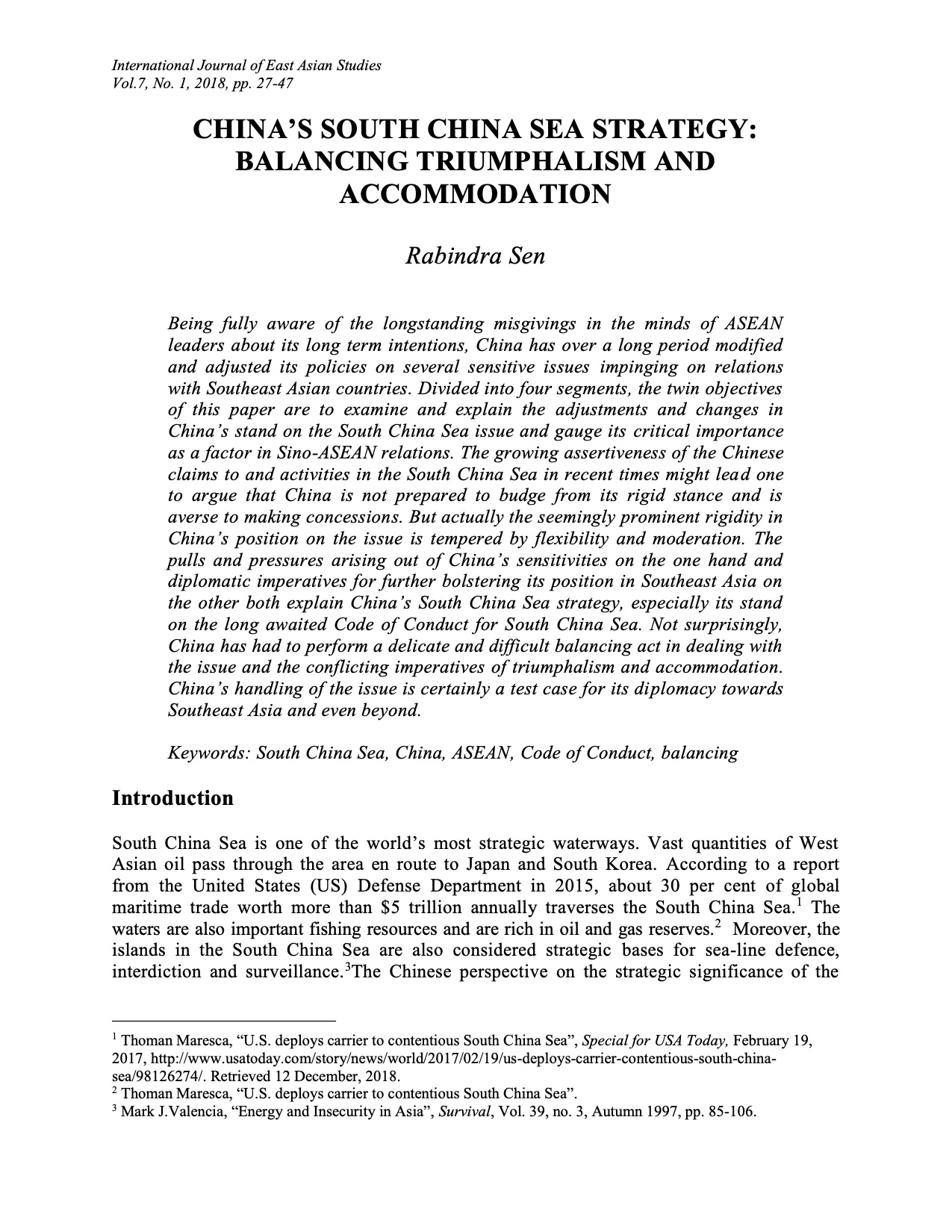China's South China Sea Strategy: Balancing Triumphalism and Accomodation
Main Article Content
Abstract
Being fully aware of the longstanding misgivings in the minds of ASEAN leaders about its long term intentions, China has over a long period modified and adjusted its policies on several sensitive issues impinging on relations with Southeast Asian countries. Divided into four segments, the twin objectives of this paper are to examine and explain the adjustments and changes in China’s stand on the South China Sea issue and gauge its critical importance as a factor in Sino-ASEAN relations. The growing assertiveness of the Chinese claims to and activities in the South China Sea in recent times might lead one to argue that China is not prepared to budge from its rigid stance and is averse to making concessions. But actually the seemingly prominent rigidity in China’s position on the issue is tempered by flexibility and moderation. The pulls and pressures arising out of China’s sensitivities on the one hand and diplomatic imperatives for further bolstering its position in Southeast Asia on the other both explain China’s South China Sea strategy, especially its stand on the long-awaited Code of Conduct for the South China Sea. Not surprisingly, China has had to perform a delicate and difficult balancing act in dealing with the issue and the conflicting imperatives of triumphalism and accommodation. China’s handling of the issue is certainly a test case for its diplomacy towards Southeast Asia and even beyond.
Downloads
Article Details
Copyright
Submission of a manuscript to the WILAYAH implies that the submitted work has not been published before (except as part of a thesis or report or abstract), that it is not under consideration for publication elsewhere; that all co-authors have approved its publication. The WILAYAH : International Journal of East Asian Studies adopts CC BY license. As such, we would be grateful if an acknowledgement accompanies the republication that the work was originally published in WILAYAH. The editors will ensure digital preservation of access to the journal content by the Journal depository section.
Disclaimer
Although the Department of East Asian Studies is the publisher of the WILAYAH : International Journal of East Asian Studies, the views presented in the WILAYAH are entirely those of the contributors and do not reflect the official stand of the Department of East Asian Studies. The Department does not hold itself responsible for the accuracy of any article published. Publisher and co-publishers assume no responsibility, nor by the editors for any injury and/or damage to persons or property as a result of any actual or alleged libellous statements, infringement of intellectual property or privacy rights, or products liability, whether resulting from negligence or otherwise, or from any use or operation of any ideas, instructions, procedures, products or methods contained in the material therein.

